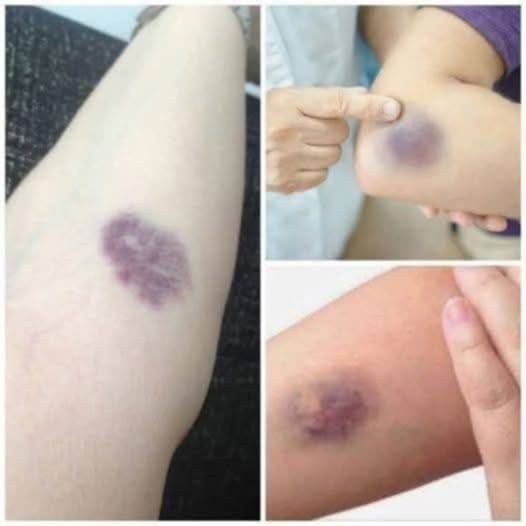
Have you ever noticed that you bruise easily—those stubborn black-and-blue marks that turn yellow but never look any prettier? Beyond the unsightly appearance and occasional discomfort, frequent bruising can signal an underlying health issue. Today, we’ll explore why you might be more prone to bruises and share practical tips to help you prevent them or uncover what your body is trying to tell you.
Medically known as ecchymosis, a bruise forms when tiny blood vessels beneath the skin rupture, leaking blood into the surrounding tissue. While a bump against a coffee table or an unexpected encounter with a doorframe often explains the occasional bruise, unexplained or frequent bruising may point to more than just clumsiness.
Nutritional deficiencies are a common culprit. Vitamin C plays a vital role in collagen production, which keeps blood vessels strong; a lack of it—especially common among smokers—can weaken vessel walls and lead to easy bruising. Similarly, inadequate vitamin K slows blood clotting and reduces capillary resilience, making even minor knocks more visible. Other supplements that thin the blood—like ginkgo, ginseng, ginger, garlic, omega-3s or high-dose vitamin E—can also contribute to fragile vessels and slower clotting.
Medications deserve attention, too. Prescription anticoagulants, daily aspirin or frequent ibuprofen can impair clotting, while steroids may thin the skin itself. And as we age, our skin naturally loses its fatty layer and our vessels become more delicate, increasing the risk of bruises. Long-term sun exposure further weakens capillary walls, compounding the problem.
Certain medical conditions—from diabetes and blood disorders like hemophilia to cancers such as leukemia or lymphoma—can disrupt clotting or damage vessel integrity. If you notice bruises on the abdomen, buttocks, genitals, ears or the backs of your hands, or if marks don’t begin fading and changing color within a few days, consult your doctor. Bruises lasting longer than two weeks also warrant medical advice.
To support healing and reduce inflammation, use the RICE method: rest, ice, compression and elevation. After a few days, a warm compress can help improve circulation. Choose acetaminophen for pain relief, since aspirin and ibuprofen may worsen bruising. Prevent nighttime tumbles—another common cause—by ensuring ample lighting, removing trip hazards like loose rugs and securing stray cords.
Your best defense is knowing your numbers. Ask your physician about blood tests to check vitamin levels and clotting function. If you’re low in C or K, they’ll recommend dietary adjustments—think citrus fruits, leafy greens and broccoli—or supplements. If your supplements or medications are thinning your blood too much, your doctor can help you strike the right balance.
Most bruises heal on their own, but persistent or unexplained bruising deserves attention. By addressing nutrition, reviewing medications and safeguarding your environment, you can minimize those unwelcome spots—and gain peace of mind that there isn’t a more serious condition lurking beneath the surface.
